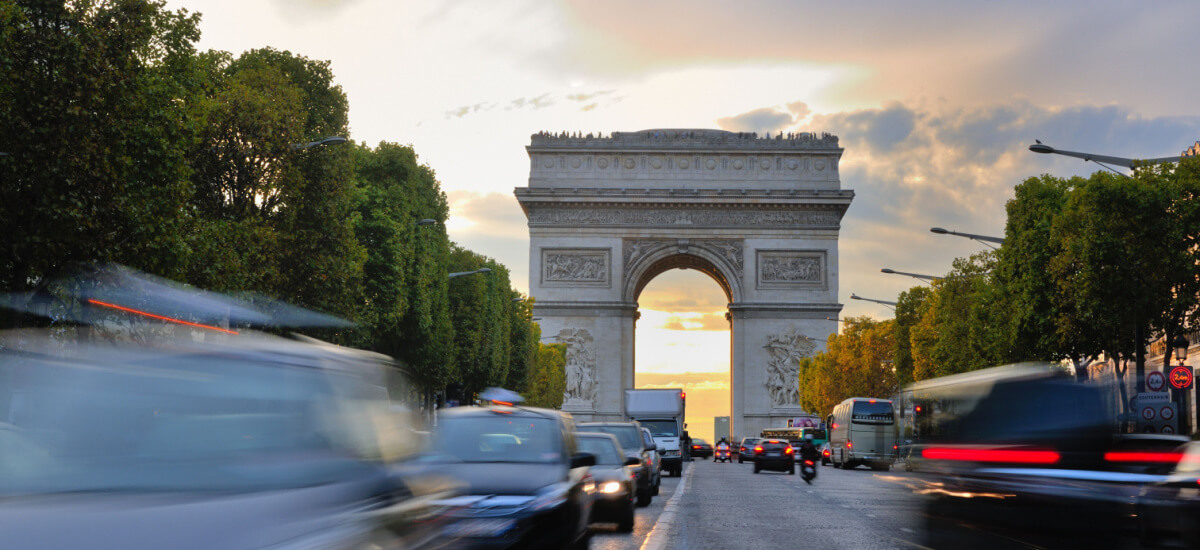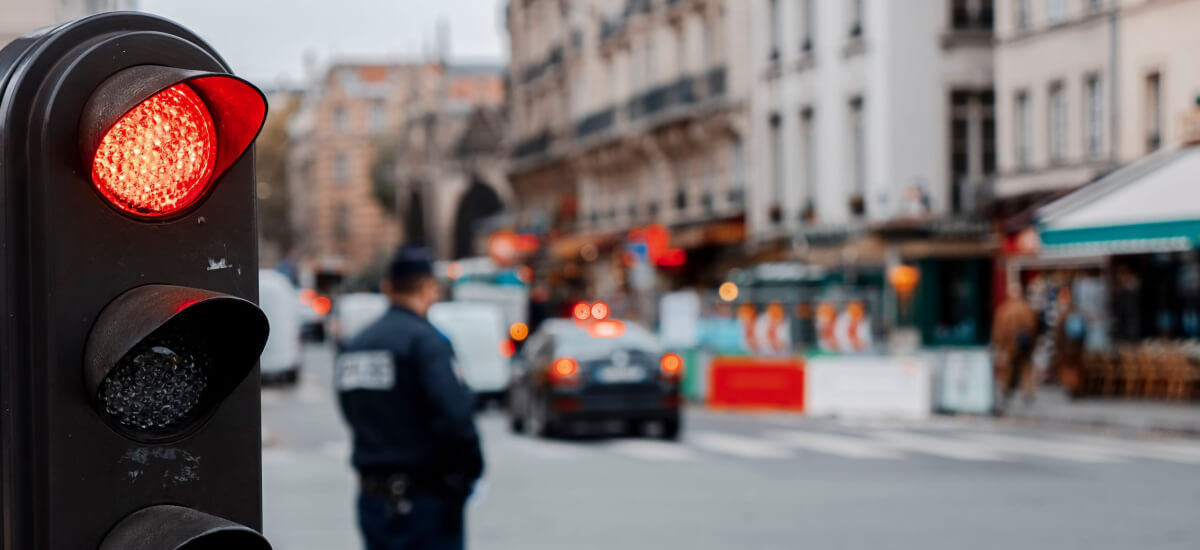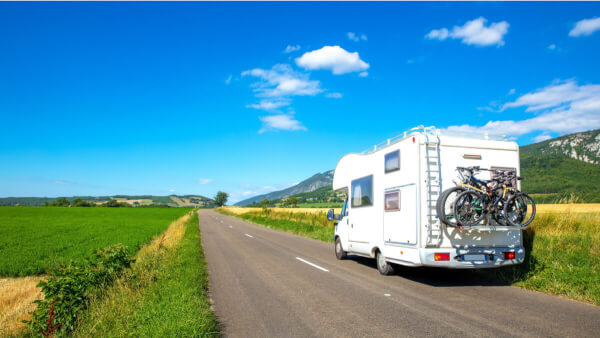VAT refund in France: A complete guide to tax-free shopping in France for tourists
You’re hoping to escape the English rain. Hop on a flight to France, and offset your expenses by adhering to this simple guide for accessing a VAT refund.

Planning on moving to France or simply spending some time there? If you’re a driver, one of the top things you might be concerned about is getting around once you arrive. Although public transport is always an option, many prefer to be the ones behind the wheel.
In this guide, we’ll cover everything you need to know about driving in France. This includes driving rules in France, the status of your UK driving licence and the requirements drivers must meet.
We’ll also point out a cost-effective way to manage your finances across borders from the money services provider Wise. The Wise account allows you to send money between the UK and France. You can also rely on the Wise card to help you handle all of your driving-related expenses abroad while avoiding high currency exchange fees.
Please see the Terms of Use for your region or visit Wise fees & pricing for the most up-to-date information on pricing and fees.
Read on to find out what’s waiting for you on the French roads.
| Table of contents |
|---|
The legal age for driving in France is 18. All drivers should have their valid licence on them at all times, but foreigners need some other documents as well. Those include the V5 certificate and proof of car insurance. Another one is your passport, since you need some form of ID along with your licence.
The vehicle you’re going to be driving also needs to meet certain conditions. If you plan on driving your own UK registered car in France, you’ll most likely need to put a UK sticker on the back of it. These have been in use since 2021, after replacing the white oval GB stickers.¹
Another thing your car might need is a sticker based on your vehicle’s emissions called the Crit’Air sticker. This is required to enter some areas of big French cities, in an attempt to reduce the emission of CO2. These areas are called low emission mobility zones. The Crit’Air sticker comes with some perks, such as favourable parking spots or the possibility of free travelling in case of pollution peaks. From 2025 onward, all French cities with over 150,000 inhabitants will need to have low emission zones.²
You also need to keep certain items inside your car to ensure safe driving in France. Not only are they helpful, but not having them puts you at risk of getting a hefty fine. These include a warning triangle and reflective jackets which will help other drivers see you in case your car breaks down, for example. You need to keep both inside the cabin of your car where you can reach them. Make sure you have headlight beam deflectors and spare bulbs for your lights as well. You can choose between using headlight deflector stickers or adjusting their angle manually.³ All of these necessary and recommended items can be found in specialised French driving kits.
Finally, those who plan on retiring in France will be happy to know that they don’t have to renew their driving licence after a certain age. Unlike some other European countries, France doesn’t have mandatory medical tests for their most experienced drivers.⁴
The short answer would be yes, UK driving licences are valid in France. This also includes the ones that were issued in Gibraltar, Jersey, Guernsey and the Isle of Man. As long as your licence isn’t expired, you can drive in France just like you would in the UK. If your licence is expiring in 6 months or less and was issued before 2021, you can exchange it for a French one.⁵
When exchanging your licence, you’ll be asked to provide proof of your driving entitlements. This informs the French authorities of the categories of vehicles you are allowed to operate. Also, you’ll need to register your UK vehicle with French plates within a month of your residency.⁵

Having trouble keeping up with all the things you need? These are the documents and equipment you need to focus on. Here’s everything to know about driving in France checklist-style:
You can get French driving kits from motorist organisations and suppliers of that sort 1such as RAC. Although you can buy all of the items from the kit individually, it’s easier to get them in one go. Some of the kits might include breathalysers, since they were once a requirement for French drivers.⁶
| 📚 Read more: Best debit card to use abroad: Top 6 UK picks |
|---|
Many driving rules in France are the same as the ones all over Europe and in the UK. However, it’s still good to know the key differences and the important regulations to keep in mind.
Cars in France have the steering wheel on the left side. Also, like in most European countries, the French drive on the right-hand side of the road. This might be challenging to get used to if it’s your first time driving outside the UK.
When driving in France, make sure you always overtake on the left, except in two cases. Multi-lane roads are one, since you’re allowed to overtake on the right in slow moving lanes. The other are trams in motion, unless you’re in a one-way street and you don’t have space on the right.
When you’re on a hill or any steep gradient, know that those going uphill have the right of way.
If you’re approaching a roundabout, you must give way to traffic that’s already on it. In other words, the vehicles on your left have priority.
When at an intersection, listen to the priorité à droite rule and give way to vehicles on the right. Both of these rules apply to all roundabouts and intersections, unless there are signs indicating otherwise.

The French only use the horn if they need to warn other drivers and road users of something. Horns are normally not used between sunset and sunrise, unless there’s an emergency.
The better option is flashing your lights. Drivers also sometimes do that in case there’s a speed trap ahead of you.
The maximum level of blood alcohol for French drivers is 0.05%. The police always carry out breath tests after accidents or serious offences, but they also have the right to do them randomly.
The rules are even stricter for new drivers. Those with less than three years of experience can only have 0.02% of alcohol in their system while driving. These limits are lower than those in the UK, so you might want to avoid drinking altogether if you plan on getting behind the wheel.
Wearing any type of headset is illegal while driving in France, even if it’s bluetooth. Using earpieces for listening to music or answering calls is against the law. Make sure you leave this habit behind so you don’t get pulled over and fined.
Need to cover some driving costs? Plan on investing in a new car in France? You might want to consider options other than your bank.
Wise is a money services provider specialising in international transfers, along with a powerful multi-currency account and international debit card.
Open a Wise account and you can manage your money in 40+ currencies, including GBP and EUR. You can also make international payments for low fees and mid-market exchange rates.
You can also get a Wise card and spend like a local from the moment you arrive in France. The Wise card has no foreign transaction fees for spending abroad, just a small conversion fee when spending cross currency, so paying for gas or car repairs won’t break the bank. It also allows you to withdraw up to £200 per month with up to 2 transactions from overseas ATMs with no Wise fees (although ATM operators may charge their own fees).
Please see the Terms of Use for your region or visit Wise fees & pricing for the most up-to-date information on pricing and fees.
Sources used for this article:
Sources last checked on: 31-Oct-2023
*Please see terms of use and product availability for your region or visit Wise fees and pricing for the most up to date pricing and fee information.
This publication is provided for general information purposes and does not constitute legal, tax or other professional advice from Wise Payments Limited or its subsidiaries and its affiliates, and it is not intended as a substitute for obtaining advice from a financial advisor or any other professional.
We make no representations, warranties or guarantees, whether expressed or implied, that the content in the publication is accurate, complete or up to date.

You’re hoping to escape the English rain. Hop on a flight to France, and offset your expenses by adhering to this simple guide for accessing a VAT refund.

Check out our handy guide to using your Monzo card and account in European countries like France, including what fees you can expect.

Check out our list of the top, must-see places in France that you’d definitely want to visit when planning your dream road trip to the country.

A complete guide to buying antiques in France, including tips for UK buyers on the best antique markets in France.

A helpful guide to Eurostar London to Paris, including timetable, journey times, prices and how to find cheap Eurostar tickets.

The bohemian atmosphere of Paris has inspired hundreds of writers, artists and great romances. The city of love’s allure continues to draw tourists from all...